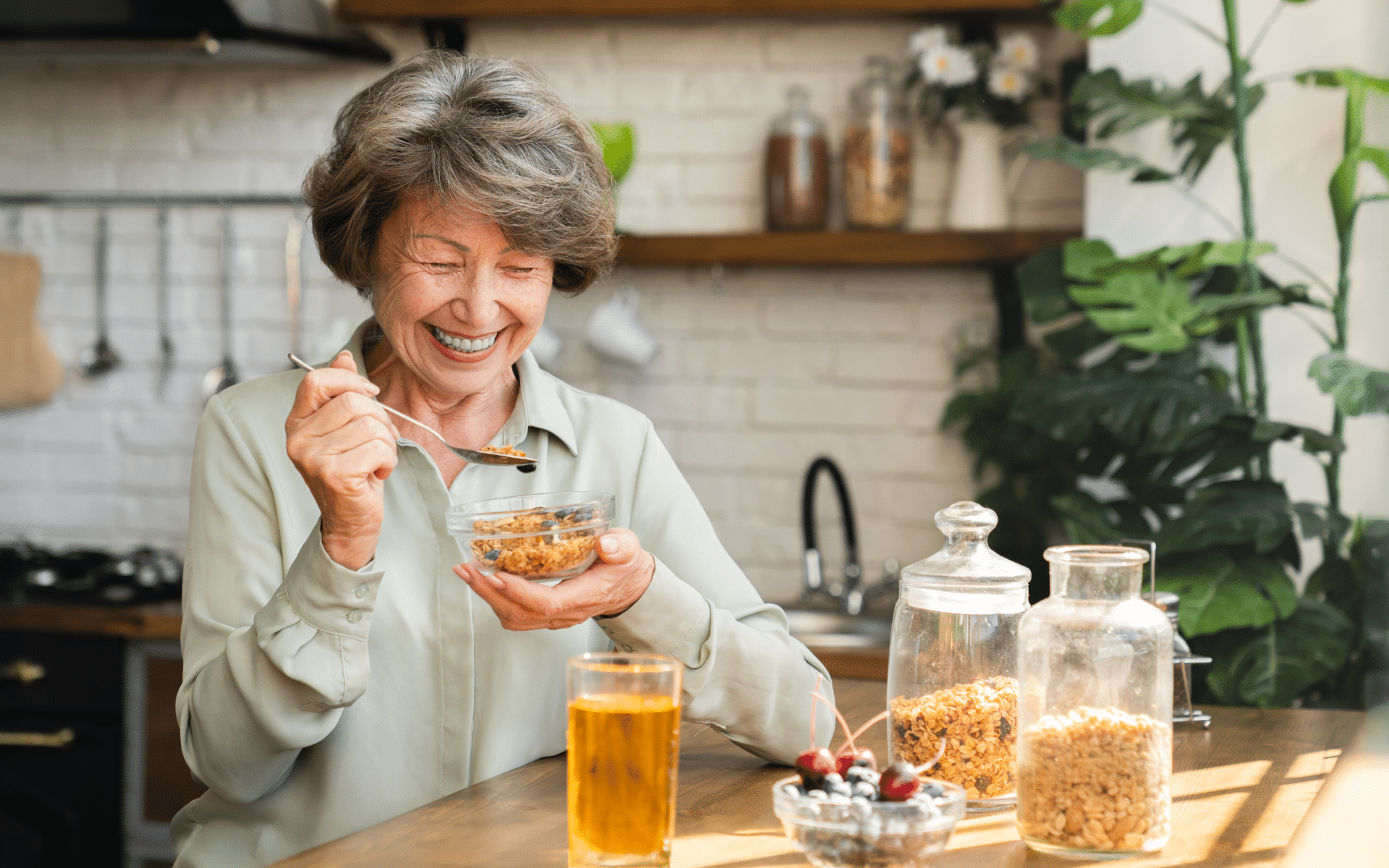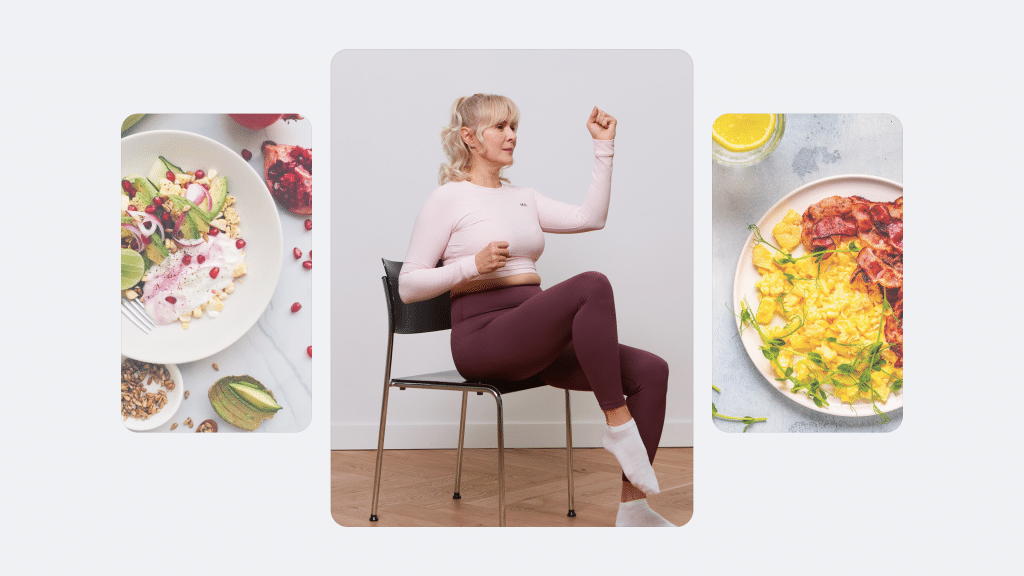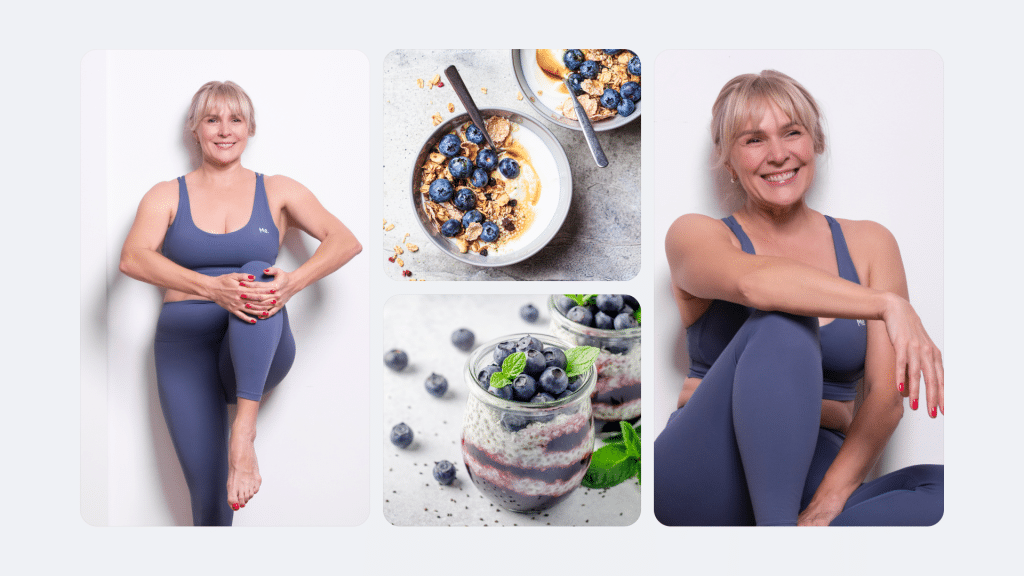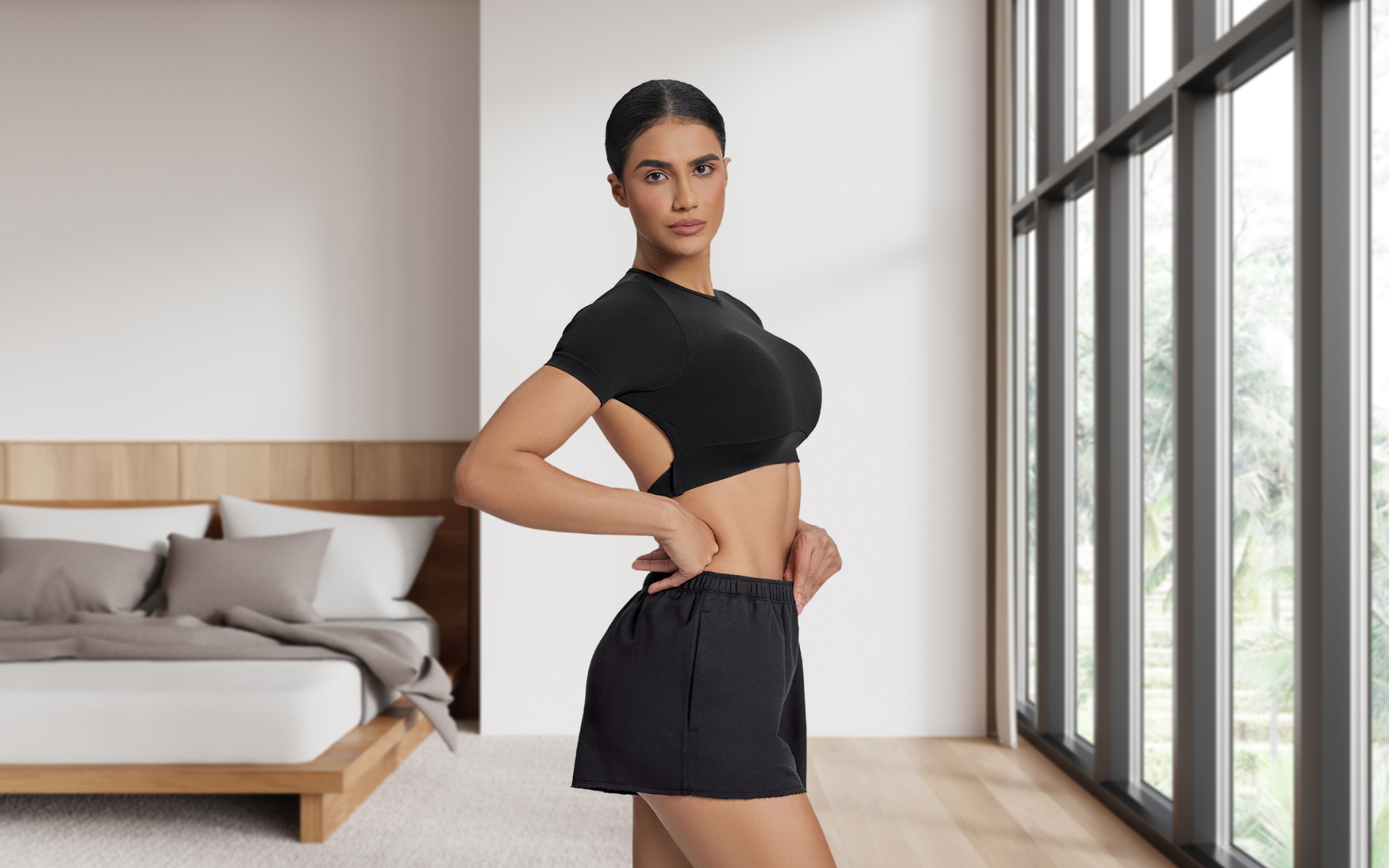Weight is an incredibly sensitive thing to many women, regardless of their age. Furthermore, staying in shape and maintaining a healthy weight is not reserved for certain age groups. Losing weight after 50 can be hard and perhaps even more so for women, but it is also a realistic goal. In this regard, how many calories should a 60-year-old woman eat to lose weight?
Naturally, as the body ages, humans require less energy from food. It reaches a point where they may have to track the calories they consume and the impact on their weight for one reason or another. 60 is a tricky age because you may feel that you can feast on a small snack, and suddenly you’ve gained 2 pounds overnight. No wonder you find senior women and men making gyms a necessary part of their routines as they feel that watching their weight is essential for their health.
Why Is it So Hard to Lose Weight After 60?
While losing weight starts to become somewhat challenging at around 50, 60 is the age where most women encounter this annoyance. Below are some of the reasons why it can be so difficult to lose weight at this age:
- Hormones Are Slowing Down, and So Is Your Metabolism:
This doesn’t start at 60, but metabolism generally slows down with age. This is partly due to the natural loss of muscle mass as we age. Hormonal changes and not getting enough of key nutrients such as calcium also can affect metabolism, which makes it more difficult to lose weight (3).
- Lifestyle changes:
At 60, you may have either retired or be nearing retirement. This creates more room for things such as eating and socializing. You may also find that you’re less physically active or just moving less throughout the day. These factors can affect your energy requirements and energy intake, which can promote weight gain or make it more difficult to lose weight.
- Potential Health Conditions to Be Aware of:
Sometimes, when losing weight becomes extremely difficult, it is due to underlying health conditions. Such health conditions include becoming less sensitive to insulin and the thyroid losing function (8).
How Can I Speed up My Metabolism in My 60s?
As you reach your 60s, it’s common to experience a slower metabolism, which can make maintaining a healthy weight more challenging. However, there are several strategies that can help boost your metabolic rate, allowing your body to burn more calories throughout the day.
- Strength Training:
First and foremost, this is a beneficial way of boosting metabolism after 60. Muscle mass naturally decreases with age, which leads to a slower metabolism as muscle tissue burns more calories than fat tissue, even when at rest (12). Engaging in regular resistance training exercises, such as lifting weights or using resistance bands, can help rebuild and preserve muscle mass, leading to an increase in your resting metabolic rate.
- HIIT:
Together with strength training, incorporating high-intensity interval training (HIIT) into your routine can also be an effective solution to the problem. HIIT involves short bursts of more intense exercise followed by periods of rest or lower-intensity activity. This type of workout can elevate your heart rate and boost calorie burn both during and after exercise due to the afterburn effect, where your body continues to burn calories even after the workout is complete (13).
- Diet:
Dietary choices also play a significant role in metabolic health. Consuming enough protein is essential, as it has a higher thermic effect than fats and carbohydrates, meaning your body uses more energy to digest it. Furthermore, protein helps preserve muscle mass, which is important for maintaining a healthy metabolism. Incorporating protein-rich foods such as lean meats, fish, eggs, and legumes in every meal can support this (14). For more details about best diet for women over 60, take a look at our prior publication.
- Drinking Water and Taking Rest:
Lastly, staying hydrated and getting enough sleep are often overlooked, but they are also non-negotiable components of a healthy metabolism. Dehydration can slow down your metabolism, so drinking plenty of water throughout the day is imperative. In addition, poor sleep can disrupt metabolic processes and lead to weight gain, so make sure you get 7-9 hours of quality sleep each night as it’s important for your metabolic health.
Read more: 3 Best Exercises to Lose Belly Fat After 50 for Women
How Many Calories Should a 60-Year-Old Woman Eat Each Day to Lose Weight?
Typically, women over 50 years and with an active lifestyle require 2,000-2,200 calories per day to maintain their weight. Women in the same age group who are somewhat active require approximately 1800 calories to maintain their weight, while those who aren’t physically active have a recommended calorie intake of about 1,600 calories per day for the same purpose.
To lose weight, you need to consume fewer calories than you need to maintain your weight, but don’t go below a minimum of about 1,200 calories per day as you need to eat sufficient nutrients to prevent your metabolism from slowing even further. Don’t be as extreme as cutting your caloric intake per day to 1,000 or below to lose as much as 2 pounds per week as this intake will be too low (6).
You should plan a moderate weight loss of ½ to 1 pound per week. This means your calorie deficit (the difference between what you consume and what you burn) will be approximately 250 to 500 calories per day. How many calories do I need a day? Based on your weight and other factors, you can use an online calculator or consult a dietitian regarding your baseline calorie needs, from which you will subtract calories and create a deficit.
How Many Calories Does a 60-Year-Old Woman Burn without Exercise?
As women age, their basal metabolic rate (BMR) naturally declines, which makes it very important to understand how many calories you’re burning daily without engaging in structured exercise. The number of calories burned at rest is determined by several factors, which include age, weight, height, and overall body composition.
The average BMR of a 60-year-old woman is typically lower than that of younger individuals due to the loss of muscle mass, which is a more metabolically active tissue than fat.
To estimate BMR, the Harris-Benedict Equation is often used (22):
BMR=655+(4.35×weight in lbs)+(4.7×height in inches)−(4.7×age in years)
For example, a 60-year-old woman who weighs 150 pounds and is 5 feet 4 inches tall would have a BMR of approximately 1,300 to 1,400 calories per day. This means that, even without exercise, her body requires this amount of energy to maintain basic physiological functions such as breathing, circulation, and cell production.
However, it’s important to note that this calculation only covers calories burned at rest. Daily activities such as walking, housework, or even fidgeting can increase the total calories burned. For a woman who leads a sedentary lifestyle, her total daily energy expenditure (TDEE) may be around 1,600 to 1,800 calories, which is directly dependent on her activity level. Therefore, understanding your BMR and TDEE can be helpful for managing weight and overall health, particularly as metabolism slows with age.
Dietary Choices for Weight Loss at 60
Your meals should be based on lean proteins, vegetables, and whole grains. Between those meals should be snacks that include low-fat dairy, healthy fats, and fruit. Below is a simple structure you can follow:
- Start your day with breakfast consisting of eggs, whole-grain toast, and an apple; low-fat plain yogurt, blueberries, and slivered almonds; or oatmeal, skim milk, and strawberries (2).
- Lunch and dinner should include a 2 to 4-ounce serving of protein that may include white fish, tofu, white-meat pork, skinless poultry, or lean steak. Adequate protein is important for 60-year-old women who are dieting as it preserves the essential lean body mass.
- If possible, you should limit high-calorie sauces and dressings as they will only add lots of extra calories without any nutritional value to your meal. Instead, go for vinegar or lemon juice, olive oil, and fresh herbs to add some flavor to your dish.
For Vegetables:
- You can combine the protein with ½ a cup of whole grains such as quinoa, barley, wild rice, or brown rice. Approximately half your plate should be made up of non-starchy vegetables such as fennel, kale, broccoli, spinach, and asparagus.
- There is no harm in trying colorful vegetables such as cabbage, eggplant, bell peppers, and cauliflower. This is because vegetables contain limited calories per serving but are packed with phytonutrients and fiber that fill you up (4).
What Foods Should I Avoid After 60?
As you age, your body’s nutritional needs also change, which makes it increasingly important to choose foods that support overall health while avoiding those that can contribute to health issues. After 60, certain foods should be limited or avoided to maintain optimal health and prevent any chronic conditions. Listed below are some of these foods that should be on your radar:
- Ultra-Processed Foods:
One of the main culprits to limit or avoid is ultra-processed foods, which are often high in unhealthy fats, added sugars, and sodium. These foods can contribute to weight gain, high blood pressure, and elevated cholesterol levels, which increases the risk of heart disease and other chronic conditions(15). Examples include fast food, packaged snacks, and sugary drinks.
- Refined carbohydrates:
These are another category to be cautious about. These include white bread, pastries, and sugary cereals, which have been stripped of their nutrients and fiber. Consuming these can cause rapid spikes in blood sugar levels and contribute to weight gain, which can lead to insulin resistance over time—a risk factor for type 2 diabetes (16).
- Saturated and trans fats:
These are also harmful, as they can contribute to increased cholesterol levels and promote inflammation (17, 18). These fats are commonly found in fried foods, baked goods, and animal-based fats. Instead, opt for healthier fats such as those that are found in olive oil, nuts, and avocados, which can support heart health.
- Excessive sodium:
Consuming too much sodium is particularly concerning for older adults, as it can exacerbate high blood pressure and increase the risk of heart concerns(19). Ultra-processed foods are a major source of hidden sodium, so it’s important to read labels and choose low-sodium options.
- Alcohol and Smoking:
Finally, it’s wise to limit alcohol consumption and smoking. Alcohol can contribute to a range of health problems, including liver disease, impaired cognitive function, and increased risk of falls and fractures (20). Smoking should also be prohibited from your lifestyle as it can cause a range of health concerns such as heart disease and cancer (21).
By focusing on a diet that is rich in whole foods such as fruits, vegetables, whole grains, lean proteins, and healthy fats, you can support your health and well-being as you age.
Read more: Intermittent Fasting for Women Over 60: Discover the Benefits and How to Fast After 60
Sample 1,400-Calorie Weight Loss Menu for a 60-Year-Old Woman
Women who are 60 years old and above require approximately 1,600 to 2,200 calories per day to maintain their weight. So, how many calories should you eat a day to lose weight? The calories needed to lose weight might be below 1,600. This 1,400-calorie menu should help the average woman in that age range lose weight, but the serving sizes can be adjusted depending on individual needs (5).
- Breakfast: A weight loss plan should include three meals in a day and one snack, which is optional. An example breakfast may consist of a boiled egg, one whole-wheat English muffin (topped with a tablespoon of peanut butter), and a 6-ounce cup of yogurt for a total of 415 calories.
- Lunch: For lunch, take 2 small mugs of mixed greens topped with half a cup of chickpeas, an ounce of low-fat cheddar cheese, six sliced almonds, and two tablespoons of low-fat salad dressing coupled with a large banana for 435 calories (11).
- Dinner: For dinner, take four ounces of grilled salmon, a cup of baked sweet potato, and a cup of roasted Brussels sprouts tossed in a teaspoon of olive oil to get 475 calories. For a snack, take half a cup of nonfat milk with half a cup of unsweetened whole-grain cereal to give you 95 calories.
BetterMe: Health Coaching app helps you achieve your body goals with ease and efficiency by helping to choose proper meal plans and effective workouts. Start using our app and you will see good results in a short time.
Eating the Right Kinds of Carbs is Essential for Weight Loss at 60
Carbohydrate-rich foods may not have been an issue before, but the body changes at 60 may require you to change your diet as well. Adults over the age of 60 are more likely to have higher blood sugar due to insulin resistance (1).
Insulin is responsible for signaling the liver, muscle, and fat cells to remove glucose from the bloodstream. But if the cells are resistant to insulin, glucose won’t be taken up, and the result is that it stays in the blood, which is how high blood sugar is developed. Over time, this can cause all manner of issues ranging from metabolic syndrome to pre-diabetes and type II diabetes. At this point, it can be extra difficult for the body to lose weight (9).
The remedy is to limit your intake of refined carbohydrates and added sugar. How many carbs per day can a woman who wants to lose weight consume? You need carbs for energy. What’s more important is the type of carbohydrate. You should get your carbs from whole grains, fruits, and vegetables, while limiting refined grain products (such as white bread and pasta) and added sugars. This will help keep your blood sugar in balance, so it will be easier for you to maintain or lose weight (7).
For many women around the age of 60, a daily intake of 1,200 calories may not be sufficient and could potentially lead to a deficiency in essential nutrients. Caloric needs vary significantly based on factors such as physical activity levels, metabolic rate, and overall health. Therefore, considering the age context, it’s paramount to consult a healthcare provider before you make any substantial changes to your diet to make sure that all your nutritional requirements are adequately met. The average weight for a 60-year-old woman can differ quite a lot, depending on factors such as height, body composition, and general health. A healthy body mass index (BMI) typically falls within the range of 18.5 to 24.9. For a woman who is 5 feet 4 inches tall, this usually translates to a weight between approximately 115 and 160 pounds. However, it’s important to keep in mind that everyone’s healthy weight is unique, and the focus should be on overall well-being rather than fitting into a specific weight category. Eggs are an excellent source of protein and other vital nutrients. For most seniors, consuming up to 7 eggs per week is generally considered to be safe as part of a balanced diet. However, it’s always wise to follow the guidance of a healthcare provider, particularly if there are any specific health conditions that may affect the appropriate number of eggs for your diet. Bananas are absolutely a fantastic choice for seniors. They’re rich in potassium, which is important for managing blood pressure, and they also provide dietary fiber, which promotes digestive health. Bananas also offer a quick and convenient source of energy and are easy on the stomach, which makes them an especially nutritious and practical option for older adults.Frequently Asked Questions
Is 1,200 calories enough for a 60-year-old woman?
What is the average weight for a 60-year-old woman?
How many eggs a week should a senior eat?
Are bananas good for seniors?
The Bottom Line
How many calories should a 60-year-old woman eat to lose weight? As noted, depending on body type and other factors, there is no uniform amount of calories for losing weight after 60. The figure may be less than 1,600 calories, but going below 1,200 calories daily isn’t recommended as you’ll then be depriving yourself of essential nutrients.
DISCLAIMER:
This article is intended for general informational purposes only and does not serve to address individual circumstances. It is not a substitute for professional advice or help and should not be relied on for making any kind of decision-making. Any action taken as a direct or indirect result of the information in this article is entirely at your own risk and is your sole responsibility.
BetterMe, its content staff, and its medical advisors accept no responsibility for inaccuracies, errors, misstatements, inconsistencies, or omissions and specifically disclaim any liability, loss or risk, personal, professional or otherwise, which may be incurred as a consequence, directly or indirectly, of the use and/or application of any content.
You should always seek the advice of your physician or other qualified health provider with any questions you may have regarding a medical condition or your specific situation. Never disregard professional medical advice or delay seeking it because of BetterMe content. If you suspect or think you may have a medical emergency, call your doctor.
SOURCES:
- A review of recent evidence relating to sugars, insulin resistance and diabetes (2016, ncbi.nlm.nih.gov)
- Dieting After 60: 4 Things You Need to Know (2014, webmd.com)
- 15 Things That Slow Your Metabolism (2020, webmd.com)
- Health Benefits of Fruits and Vegetables (2012, ncbi.nlm.nih.gov)
- How Many Calories Do You Really Need? (2020, webmd.com)
- How many calories should I eat a day? (2018, medicalnewstoday.com)
- How many carbs should dieters eat for weight loss? (2018, medicalnewstoday.com)
- Insulin and Insulin Resistance (2005, ncbi.nlm.nih.gov)
- Metabolic Syndrome: Insulin Resistance and Prediabetes (2015, pubmed.ncbi.nlm.nih.gov)
- Perimenopause (2020, webmd.com)
- Quick, Easy Recipes: More Halfway Homemade Dishes (2008, medicinenet.com)
- Muscle tissue changes with aging (2010, ncbi.nlm.nih.gov)
- EPOC Comparison Between Resistance Training and High-Intensity Interval Training in Aerobically Fit Women (2021, ncbi.nlm.nih.gov)
- Protein choices targeting thermogenesis and metabolism (2023, sciencedirect.com)
- Ultra-processed Foods and Cardiovascular Diseases: Potential Mechanisms of Action (2023, sciencedirect.com)
- Death by Carbs: Added Sugars and Refined Carbohydrates Cause Diabetes and Cardiovascular Disease in Asian Indians (2016, ncbi.nlm.nih.gov)
- Saturated Fatty Acids and Risk of Coronary Heart Disease: Modulation by Replacement Nutrients (2010, ncbi.nlm.nih.gov)
- Mechanisms of Action of trans Fatty Acids (2019, ncbi.nlm.nih.gov)
- Sodium Intake as a Cardiovascular Risk Factor: A Narrative Review (2021, ncbi.nlm.nih.gov)
- Medical Complications: Common Alcohol-Related Concerns (n.d., niaaa.nih.gov)
- Health Effects of Cigarette Smoking (n.d., cdc.gov)
- Harris-Benedict Calculator (TDEE & BMR) (n.d., inchcalculator.com)











